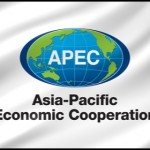These opening remarks were delivered by the author at the session – The Future of Asia Pacific Economic Cooperation in a Sustainable VUCA World – What to Expect? What Next? This session was part of the 2020 Asia Economic and Entrepreneurship Summit, jointly organised by the KSI Strategic Institute for Asia Pacific (KSI), The Pacific Basin Economic Council (PBEC) and China Daily Asia Pacific (CD), Kuala Lumpur, 8 September 2020.
Thank you, Mme. Chair, I am happy to be part of this first panel. In the seven minutes allotted to me, I propose to put forward five arguments.
But, first a quick comment on this session’s theme. The ‘VUCA World’ is a standard business management term, standing for Vulnerability, Uncertainty, Complexity and Ambiguity. I would submit that COVID-19 has created a far graver and truly unprecedented situation, with its disastrous impact on health, life, livelihoods and economies of countries around the globe. Further, the reference to ‘Asia-Pacific Economic Cooperation’ in the title is less to APEC as an institution and more to the Asia-Pacific region.
Now my five arguments.
First, the Asia-Pacific region is a dated idea. Much of the world talks today about the Indo-Pacific. What is Indo-Pacific? In short, it is the sum total of the Asia-Pacific and the Indian Ocean region, although consensus eludes experts when they try to define the geographic contours of the Indo-Pacific. At the very least, the Indo-Pacific stands for Asia-Pacific plus India. Probably that is why I am here as part of this panel.
Second, geopolitical dynamics of today tends to accord priority to security over development. Scholars are agreed that the pandemic, which was first detected in Wuhan, has accelerated U.S.-China tensions and also created new disturbing trends in Asian geopolitics. The overarching feature is China’s sharply assertive diplomacy and aggressive behaviour, particularly on its periphery stretching from the eastern Ladakh on the India-China border through the South China Sea to Senkaku Islands – and beyond. Watching, with deep concern, the latest intrusions by PLA into the Indian territory, we in India are aware of this dimension.
New Delhi’s considered view is that this is the age of development and peaceful reconciliation, not expansionism and aggression. Do our friends from China agree? Is China willing to develop a suitable equilibrium with India? Beijing’s answers will shape the prospects of peace and economic cooperation in the region. Others too – ASEAN, South Korea, Japan and Australia – are all concerned. The basic question is this: are we all working for a cooperative, inclusive and peaceful ‘Asian century’ and a multipolar Asia, or are we now compelled to subscribe to ‘the China dream’ and a unipolar Asia? The question demands deep reflection.
Third, India remains committed to forging closer economic cooperation with this region, despite her conscious decision to step out of negotiations for the RCEP. We are aware that this decision caused disappointment to our regional partners, but please note that some of them disappointed us too. They did not stand firmly with us to insist that India’s legitimate concerns should be accommodated. An RCEP without India would be like an aircraft with one wing! Maybe it can still fly, but a diminished RCEP will deny itself the benefits of access to a 1.3 billion strong market.
Fourth, India plans to focus on its economic ties with ASEAN and other partners. It strives for an accelerated review of the its FTAs with ASEAN and Japan. It will also concentrate on strengthening connectivity in the sub-regional fora such as BIMSTEC and Mekong-Ganga Cooperation (MGC). We are also excited about the notion of the Bay of Bengal Community. We see Indonesia, Vietnam, Singapore, South Korea, Australia, Japan and others working closely with us in the Indo-Pacific. Further, India is also invested in creating an economic pillar or development dimension of the Quad. The objective is to cement Covid-related cooperation and extend it to trade, technology and digitisation as well as connectivity and financing for new development projects. The newest development relates to crafting a trilateral Supply Chain Resilience Initiative, comprising India, Japan and Australia. It will be launched formally in the near future.
Fifth, the Blue Economy should be highlighted as a theme of crucial importance for economic development in the future. Its relevance has increased dramatically in the Covid era of economic recession. IR 4.0 technologies will need to be deployed to generate additional income sources for humankind. Our oceans offer immense potential, but their development will need to be undertaken sustainably. Hence, both for the realisation of potential and for clearing the plastic litter in our shared maritime space, there is much that our regional partners can achieve through concerted action. We spelt it out well in a recent multi-sectoral study by FICCI, India’s premier industry chamber.
Click here to view the event.
Rajiv Bhatia is Distinguished Fellow, Foreign Policy Studies Programme, Gateway House. As a former Ambassador of India and senior official in the Ministry of External Affairs, he served in/dealt with seven Indian Ocean Rim countries: South Africa, Kenya, Indonesia, Bangladesh, Myanmar, Sri Lanka and Maldives.
These opening remarks were delivered by the author at the session – The Future of Asia Pacific Economic Cooperation in a Sustainable VUCA World – What to Expect? What Next? This session was part of the 2020 Asia Economic and Entrepreneurship Summit, jointly organised by the KSI Strategic Institute for Asia Pacific (KSI), The Pacific Basin Economic Council (PBEC) and China Daily Asia Pacific (CD), Kuala Lumpur, 8 September 2020.
For interview requests with the author, or for permission to republish, please contact outreach@gatewayhouse.in.
© Copyright 2020 Gateway House: Indian Council on Global Relations. All rights reserved. Any unauthorized copying or reproduction is strictly prohibited


